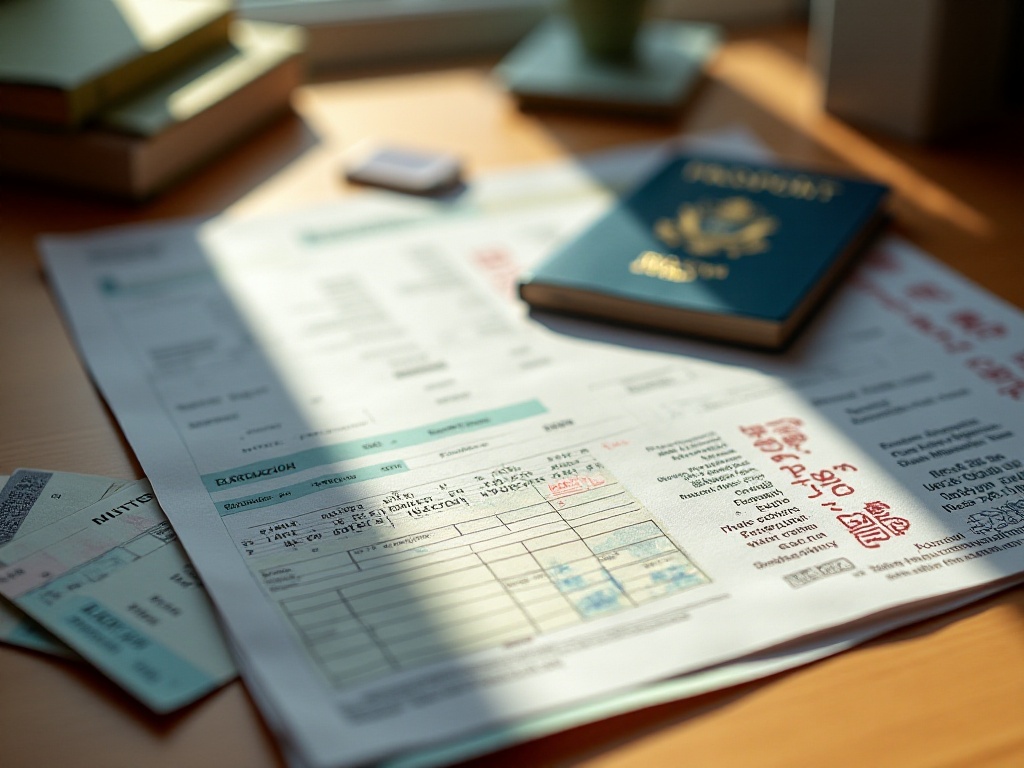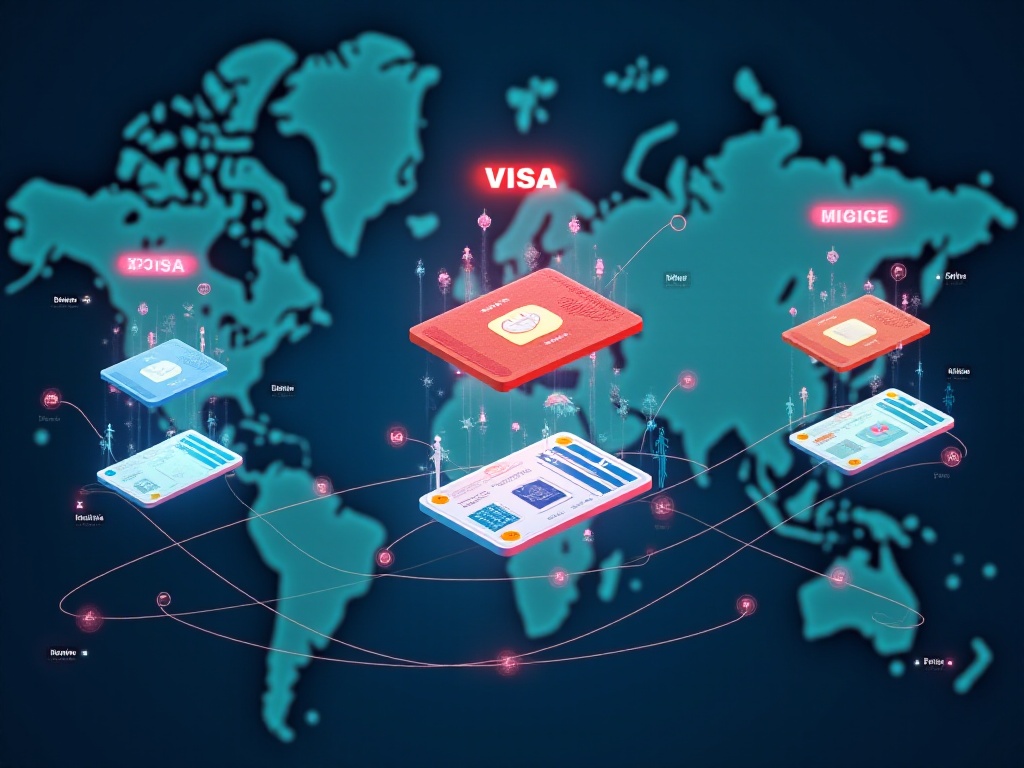Introduction
Have you ever felt anxious about visa applications? As a travel blogger who has visited over 30 countries, I deeply understand this feeling. I remember being overwhelmed when applying for my first visa, facing complicated document lists and complex requirements. Today, I'll share all my visa application experience with you in the simplest terms.
Basics
While visa applications may seem complex, they become manageable once you grasp the key points. I've summarized three keywords: authenticity, completeness, and consistency.
Authenticity is the most basic requirement. I've seen too many cases of visa rejections due to false documents. Last year, a reader consulted me after being rejected for using photoshopped bank statements to improve their chances. This not only resulted in rejection but also left a negative record affecting future travel plans. So I must emphasize: better to have imperfect materials than fake ones.
Completeness means preparing comprehensive materials. Visa officers judge based on your submitted documents - missing one item could affect the final result. I suggest making a detailed checklist when preparing materials, checking each item against official requirements. Here's a tip: organize materials by category, such as identity, financial, itinerary, etc., to avoid missing anything.
Consistency means all materials should corroborate each other. For example, your salary should match bank statements, and travel plans should align with flight and hotel bookings. I once helped a friend whose visa application showed Paris in the itinerary but Amsterdam in flight bookings - such inconsistencies easily raise suspicion.
Preparation
Next, let's discuss specific preparation work. Based on my experience, visa application preparation can be divided into four steps:
First is determining the visa type. Countries now offer various visa options, including traditional tourist visas, e-visas, and visas on arrival. For example, Thailand introduced new e-visa on arrival policies in 2023, greatly simplifying the application process. I suggest checking your destination country's latest visa policies at least 3 months before planned travel.
The second step is collecting necessary documents. Basic documents include: passport (usually requiring validity over 6 months), ID photos (meeting specifications), identification, proof of funds, etc. Note that photo requirements vary by country. For example, Schengen visas require photos taken within 3 months, while U.S. visas require pure white backgrounds.
The third step is preparing supplementary materials. While not mandatory, these can increase approval chances. For example:
- Work proof: Preferably formal employment contracts or workplace certificates
- Asset proof: Besides bank deposits, you can provide property deeds, vehicle registration, etc.
- Social relationship proof: Marriage certificates, children's birth certificates, etc.
- Itinerary materials: Detailed travel plans, round-trip flight bookings, hotel confirmations, etc.
The fourth step is completing the application form. Though seemingly simple, problems often occur here. I recommend:
- Use English, write neatly and clearly
- Information must match passport exactly
- Answer all questions truthfully
- Leave uncertain items blank rather than guessing
Tips
Now for some practical application tips. These come from my multiple application experiences:
- Proper timing is essential. Different countries have varying processing times. Based on my statistics:
- Schengen visa: Usually needs 15 working days
- U.S. visa: Interview wait times can extend several months
- Japanese visa: Generally results within 5 working days
-
Australian visa: Usually processed within 15 working days
-
Prepare sufficient proof of funds. Many ask, "How much savings is enough?" While there's no universal standard, I suggest:
-
Short-term tourism: Prepare proof of $100-200 per day minimum
- Long-term stays: Suggest proving 3-6 months' living expenses
-
Special note: Funds should be in accounts over 3 months, avoid sudden large deposits
-
Interview skills matter. If an interview is required, I suggest:
-
Dress appropriately but not too formally
- Prepare brief English self-introduction
- Answer concisely, avoid irrelevant content
- Maintain sincere attitude, don't be overly nervous
Misconceptions
While helping readers with visa applications, I've noticed several common misconceptions worth highlighting:
Misconception One: More savings is better Actually, visa officers care more about fund stability and reasonable sources. I saw a reader with million-yuan deposits get questioned because the money was recently transferred.
Misconception Two: Agencies can handle everything While agencies can help, applicants must prepare many materials themselves. Also, some countries (like the U.S.) require personal interview attendance.
Misconception Three: Rejection means no hope Actually, many succeed on second applications after gaining experience and knowing how to improve. I know someone who got approved for a U.S. visa after learning from their first rejection.
Cases
Let me share some real cases for inspiration:
Case One: First Schengen Visa Application Last year, a reader planning French travel applied for their first Schengen visa. Their thorough preparation included: - Starting 6 months ahead - Maintaining stable bank balance - Detailed itinerary planning - Complete insurance purchase They successfully received a 30-day multiple-entry visa.
Case Two: Success After U.S. Visa Rejection A freelancer reader was initially rejected for U.S. visa due to: - Unstable occupation - Unclear fund sources - Lack of fixed assets Following my advice, they: - Registered a personal studio - Prepared complete income proof - Purchased property Six months later, they received a 10-year multiple-entry visa.
Recommendations
Finally, some advice for visa applicants:
- Early planning matters Start preparing 3-6 months ahead. This allows:
- Sufficient time collecting materials
- More stable-looking bank statements
-
Avoiding last-minute rush
-
Maintain document validity Check expiration dates:
- Passport valid over 6 months
- Bank statements within 3 months
-
Employment certificates within 1 month
-
Details matter
- All copies must be clear and complete
- Use professional translation services
- Photos must meet specifications
Conclusion
Visa applications require effort, but success rates are high with proper preparation. Remember, each application, successful or not, is a learning opportunity. What do you think? Share your visa application experiences in comments - your experience might help others.
Feel free to comment with any visa application questions. Travel broadens horizons, and visas are just small hurdles toward this goal. Let's overcome these together and explore this wonderful world.
Are you ready to start your visa application journey?







